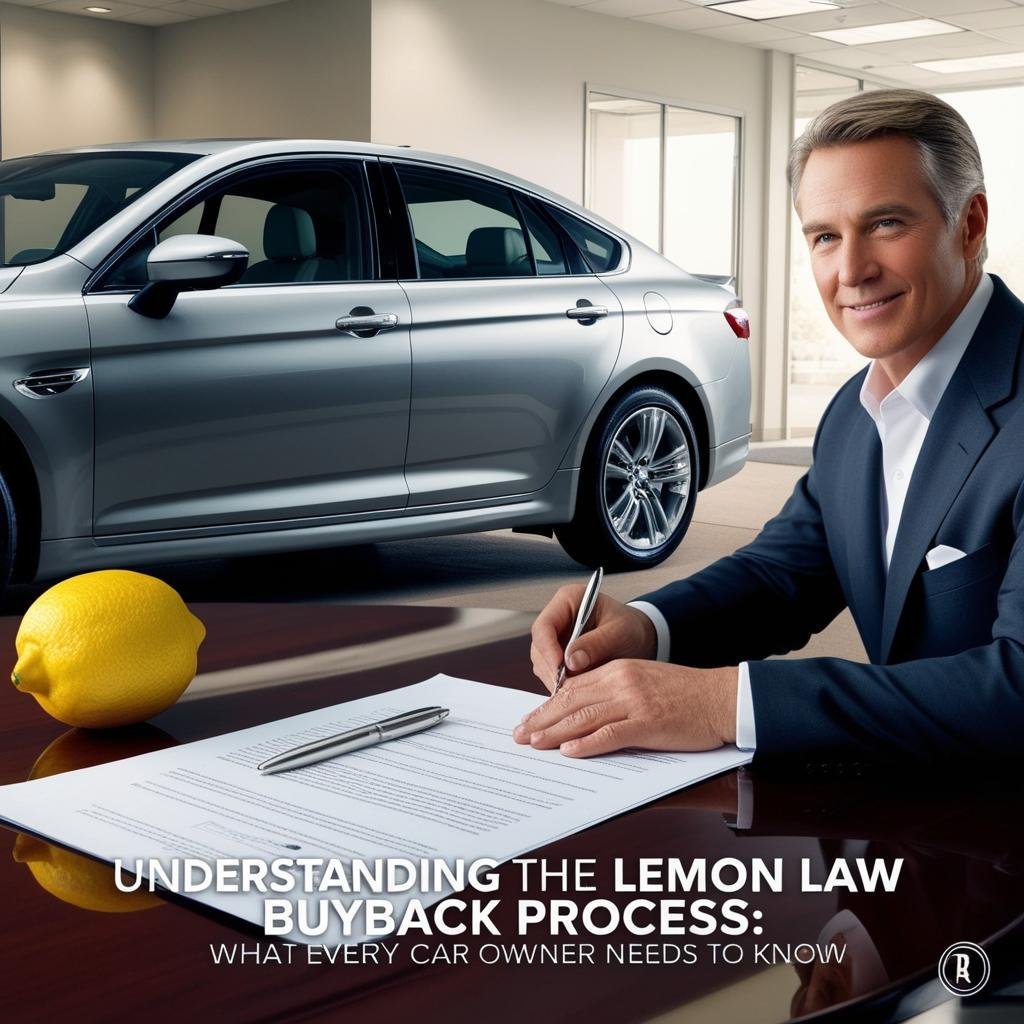Purchasing a new vehicle is a major investment. But what happens when that brand-new car turns out to be a consistent headache? That’s where the Lemon Law Buyback comes into play. Designed to protect consumers from defective vehicles, this legal recourse allows car buyers to receive a refund or replacement when their car doesn’t meet expected quality or performance standards.
In this guide, we’ll break down how the Lemon Law Buyback process works, what qualifies a vehicle, and how to navigate the system effectively.
What Is a Lemon Law Buyback?
A Lemon Law Buyback refers to the process where an auto manufacturer repurchases a vehicle that has a substantial defect not fixed after a reasonable number of attempts. This includes problems with the engine, transmission, brakes, or any issue that significantly impacts safety, value, or usability.
Each state has its own lemon law criteria, but most rely on a similar threshold: if the issue persists after a few documented repair attempts within the warranty period, the vehicle may qualify for a vehicle repurchase program.
In California, this process is governed by the Song-Beverly Consumer Warranty Act, which protects consumers from repeated warranty failures.
Do You Qualify for a Lemon Law Buyback?
Not every defective car will qualify for a Lemon Law Buyback. To be eligible, most states require that:
- The vehicle is still under manufacturer warranty.
- The defect is substantial and affects use, value, or safety.
- The manufacturer has had a reasonable number of attempts to repair the problem.
- The defect has not been resolved.
In addition, your vehicle must often be out of service for a specific number of days due to repairs. For example, under California law, if your car is out of service for more than 30 days within the first 18 months or 18,000 miles, it could qualify under the vehicle repurchase program.
What Happens During the Lemon Law Buyback Process?
Once a claim is accepted, the manufacturer typically offers to buy back the vehicle. This means reimbursing the consumer for the:
- Down payment
- Monthly payments made
- Registration fees
- Taxes
- Remaining loan balance (in some cases)
However, manufacturers may deduct a mileage offset, which accounts for the use of the vehicle before the first reported issue. Despite this, many still find the Lemon Law Buyback process beneficial as it can save them from being stuck with a problematic vehicle.
For California residents, the Song-Beverly Consumer Warranty Act outlines strict timelines for responses and resolutions, giving consumers a solid legal framework to rely on.
Should You Settle or Sue?
In some situations, manufacturers may offer a cash settlement or extended warranty instead of a full Lemon Law Buyback. While this can be enticing, it may not always be in your best interest. Consulting a lemon law attorney is often wise before agreeing to any settlement. They can assess the strength of your case and help you determine if you should opt for the vehicle repurchase program or pursue additional compensation.
Some states even allow recovery of legal fees, which can make hiring a lawyer a cost-effective option for consumers.
How to Strengthen Your Lemon Law Claim
To maximize your chances of a successful Lemon Law Buyback, keep detailed records. This includes:
- All repair invoices and receipts
- Dates of service and problems reported
- Communications with the dealership and manufacturer
- Copies of warranty documents
Such documentation will be critical in proving your case. In many instances, the manufacturer may try to argue that your vehicle doesn’t qualify for a vehicle repurchase program, especially if records are incomplete.
The Song-Beverly Consumer Warranty Act encourages thorough documentation and communication to protect both the consumer and manufacturer during disputes.
Common Misconceptions About Lemon Law Buybacks
One common myth is that only brand-new cars are eligible. In reality, used cars under the original manufacturer warranty may also qualify for a Lemon Law Buyback, depending on the state.
Another misconception is that a buyback means your credit will be impacted. Fortunately, the process typically does not negatively affect your credit, especially if handled legally and transparently through the vehicle repurchase program.
Some also believe that a Lemon Law Buyback must result in a court case. While litigation is an option, many claims are settled out of court, especially with the backing of the Song-Beverly Consumer Warranty Act in California.
What Happens to Lemon Law Buyback Vehicles?
Many Lemon Law Buyback vehicles are repaired and resold, but they must be clearly labeled as such. Buyers should be cautious when purchasing a vehicle with a Lemon Law Buyback history and should request a full inspection and repair record.
Always check the vehicle’s title and ask the dealership if it was part of a vehicle repurchase program. Repaired vehicles can be reliable, but it’s critical to understand the past issues and how they were addressed.
Final Thoughts
If you believe you’ve purchased a defective car, understanding the Lemon Law Buyback process can protect you from long-term frustration and financial loss. Whether you choose a vehicle repurchase program, a replacement vehicle, or a legal settlement, the laws are on your side.
Don’t overlook the power of the Song-Beverly Consumer Warranty Act if you’re in California—it’s one of the strongest consumer protection statutes in the country.
Need Help With a Lemon Law Claim?
Navigating a Lemon Law Buyback can be complex, especially when dealing with manufacturers. Consider working with a professional lemon law attorney to ensure your rights are protected and to guide you through the vehicle repurchase program process efficiently.

